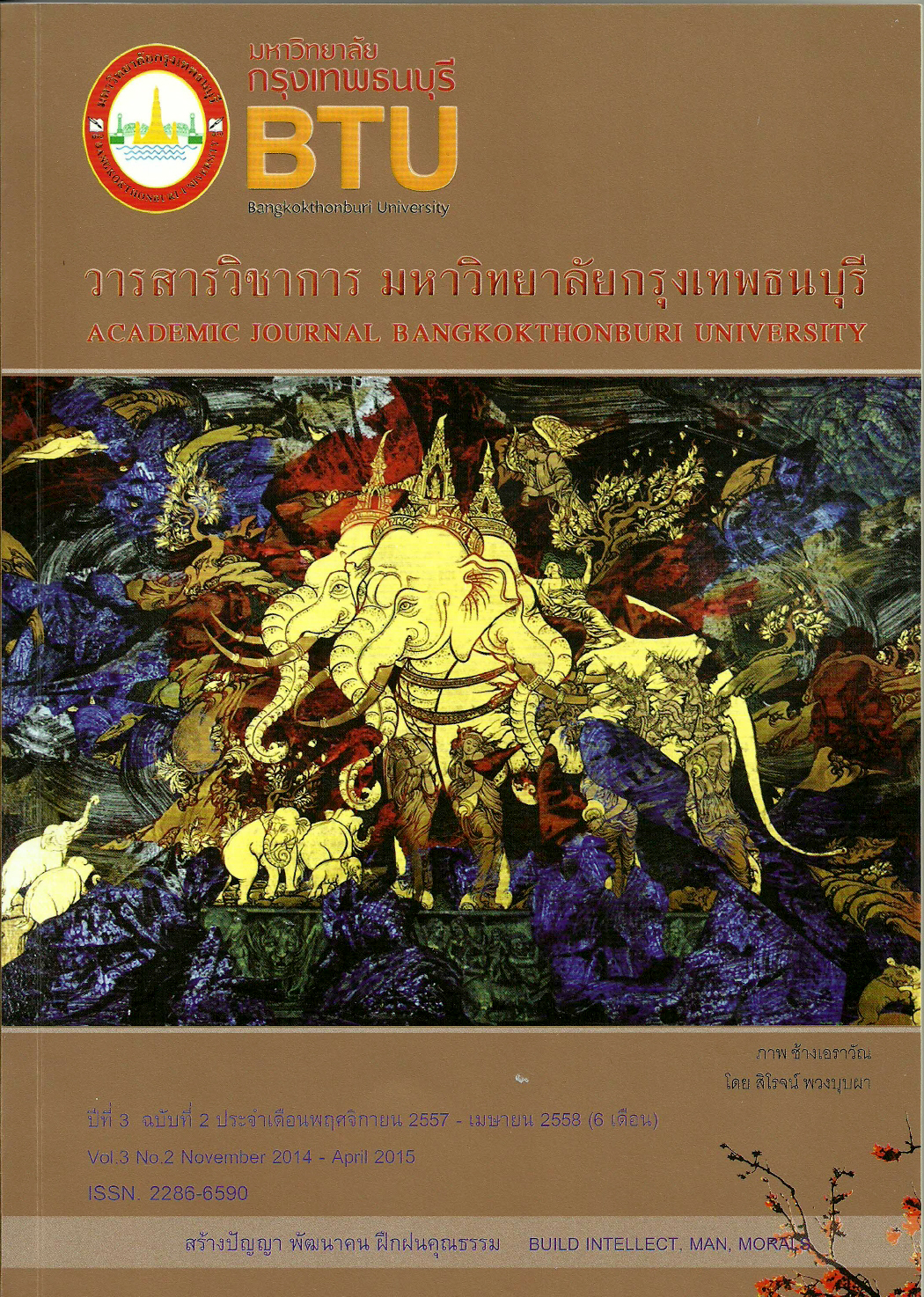การศึกษาหลักจริยศาสตร์ของขงจื้อ
Main Article Content
Abstract
บทความนี้มีวัตถุประสงค์เพื่อนำเสนอพื้นฐานทางจริยศาสตร์ของขงจื้อซึ่งประกอบด้วย หลักการ พื้นฐาน ขอบเขต ระดับ วิธีการปฏิบัติ เกณฑ์การตัดสินความดี-ความชั่ว และจุดหมายสูงสุดของขงจื้อ จากตำราที่เกี่ยวข้องกับหลักจริยศาสตร์ของขงจื้ออันถูกรวบรวมและเรียบเรียงไว้โดยเหล่านักวิชาการและ ท่านผู้รู้เกี่ยวกับจริยศาสตร์ของขงจื้อ
ขงจื้อได้วางหลักการพื้นฐานทางจริยศาสตร์ไว้ 5 ประการ ได้แก่ 1) หลักความเมตตา 2) หลักความชอบธรรม 3) หลักความเหมาะสม 4) หลักความรอบรู้ และ 5) หลักความเป็นผู้น่าเชื่อถือ พร้อมกำหนดขอบเขตของการประพฤติปฏิบัติตามหลักจริยศาสตร์ 5 ประการ ดังนี้ 1) ความเป็นคนดี มีวิถีทาง คือ ความเมตตากรุณา ความฉลาด ความกล้า 2) ความสุภาพถ่อมตน ต้องสุภาพต่อทุกๆ คน ไม่ว่า จะเป็นคนหนุ่ม แก่ จน รวย 3) การพึ่งตนเอง ให้พยายามช่วยตนเอง อย่าคิดพึ่งพาคนอื่น เพราะเป็นลักษณะ ของคนอ่อนแอไม่รู้จักโต 4) การตอบแทนความดี ให้ตอบแทนความชั่วด้วยความดี ความยุติธรรม และตอบแทนความดีด้วยความดี และ 5) ความกตัญญู ให้ลูกหลานกตัญญูต่อพ่อแม่ผู้มีพระคุณ เคารพเลี้ยงดู เมื่อท่านสิ้นชีวิต กระทำพิธีศพให้เหมาะสม สังเวย กราบบูชาวิญญาณบรรพบุรุษโดยขงจื้อได้พยายามเสนอหลักจริยศาสตร์ที่สอดคล้องกับสัจธรรมและจารีตประเพณีที่บรรพบุรุษได้เชื่อถือสืบต่อกันมา แบ่งเป็น 2 ระดับ ระดับปัจเจกบุคคลกับระดับสังคม ซึ่งจะต้องปฏิบัติตามจารีตประเพณีและหลักความสัมพันธ์ 5 ประการ อันได้แก่ 1) ผู้ปกครองกับผู้อยู่ใต้การปกครอง 2) บิดามารดากับบุตรธิดา 3) สามีกับภรรยา 4) พี่กับน้อง และ 5) เพื่อนกับเพื่อน โดยนำหลักมนุษยธรรมมาเป็นเกณฑ์ตัดสินความดีความชั่ว และปฏิบัติตนเพื่อให้ถึงซึ่งจุดมุ่งหมายสูงสุดในทางจริยศาสตร์ “เทียนหรือสวรรค์”
A Study of the Ethical Principles of Confucianism
The objectives of the article were to present the ethical principles of Confucianism by emphasizing on the fundamental principles, scopes, levels, judging criteria and their ultimate goals from religious textbooks on Confucianism composed by religious experts and those who knew Confucianism.
Confucius specified the five fundamental, ethical principles, namely, 1) loving-kindness,2) morality, 3) aptness, 4) intelligence, and 5) credit. And Confucius also determined the scopes of practicing the ethical principles as follows: 1) be good, which there were three ways such as loving-kindness, wisdom, and courageousness, 2) be polite to everybody not even the young, the old, and the rich, 3) to be self-reliance without depending on others for helper, 4) to compensate the bad deeds with the good deeds and the justice and the good deeds with the good deeds, and 5) be grateful, the sons should be grateful to their parents, respect them, take care of them; when they died, the sons should do the dying ritual as proper, worship them even ancestors classified as two levels; individual and social levels. They must follow the tradition and five relationship principles as follows: 1) the ruler to subject, 2) father to son, 3) husband to wife, 4) elder brother to younger brother, and 5) friend to friend. According to Confucius, humanism principles were considered as judging the criteria between the good deeds and the bad deeds. And self-restraint based on Confucius ethics was also to attain the ethic ultimate goals of Confucius-“heaven or Tien” as the highest goals or the realm of happiness.


